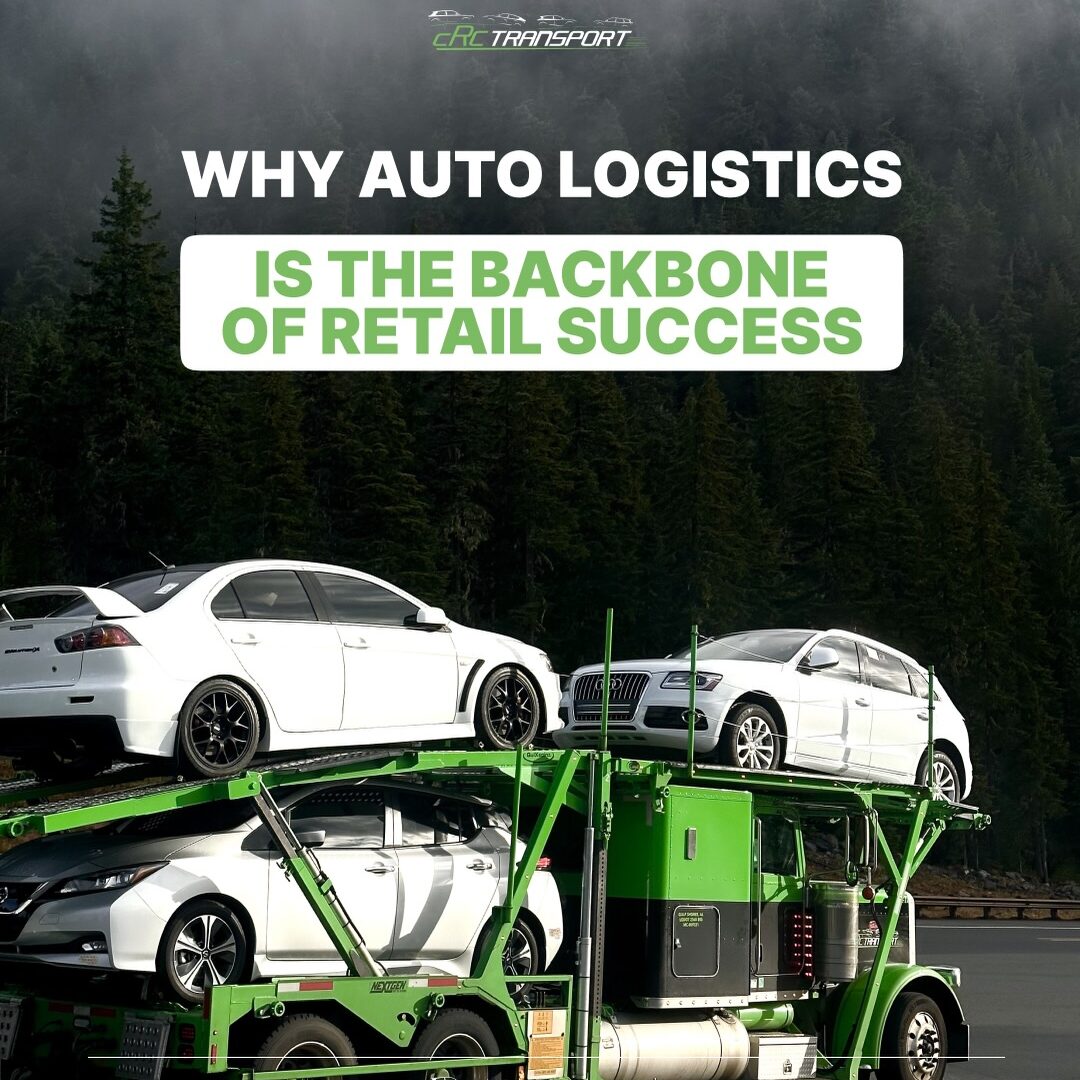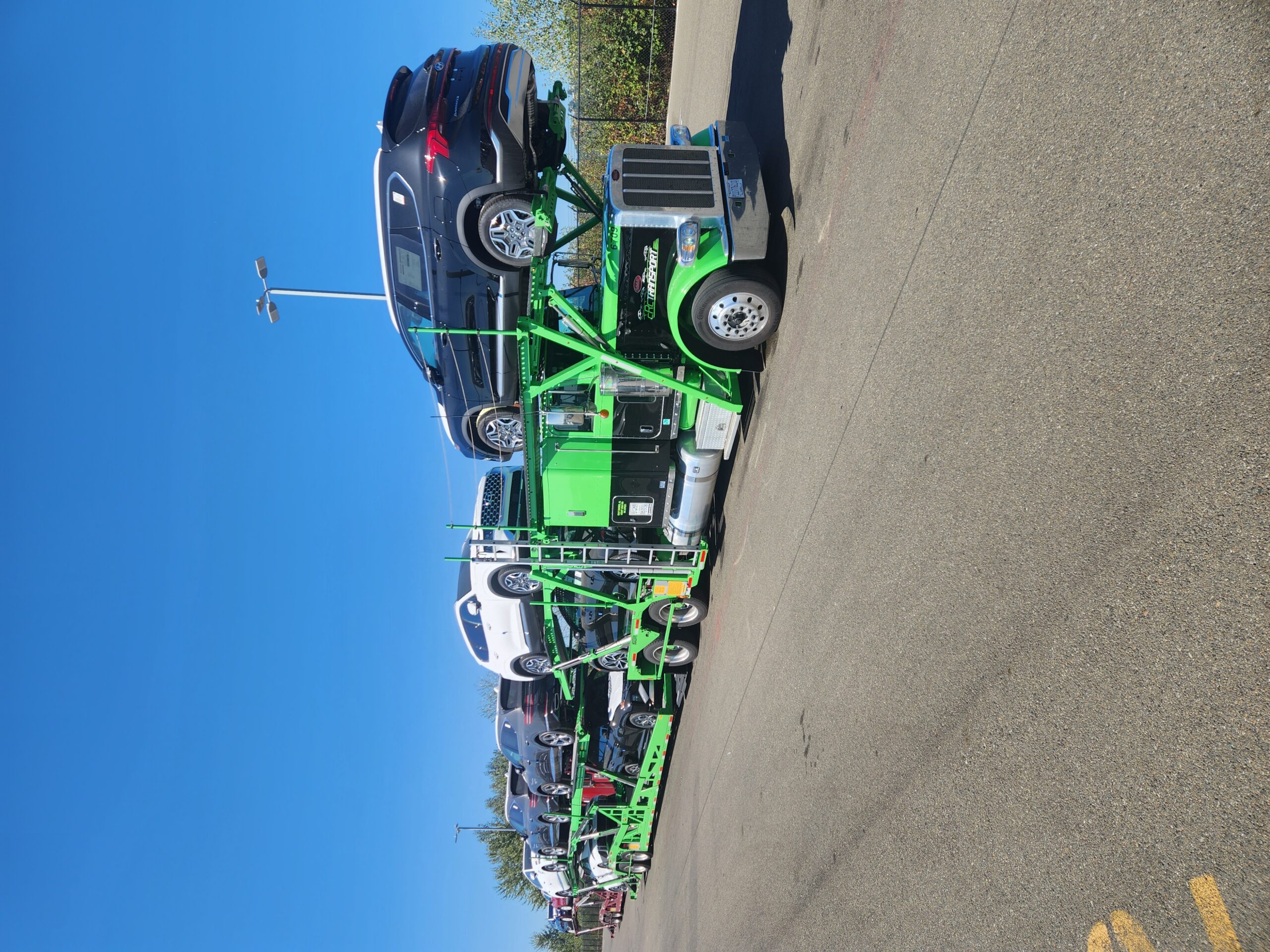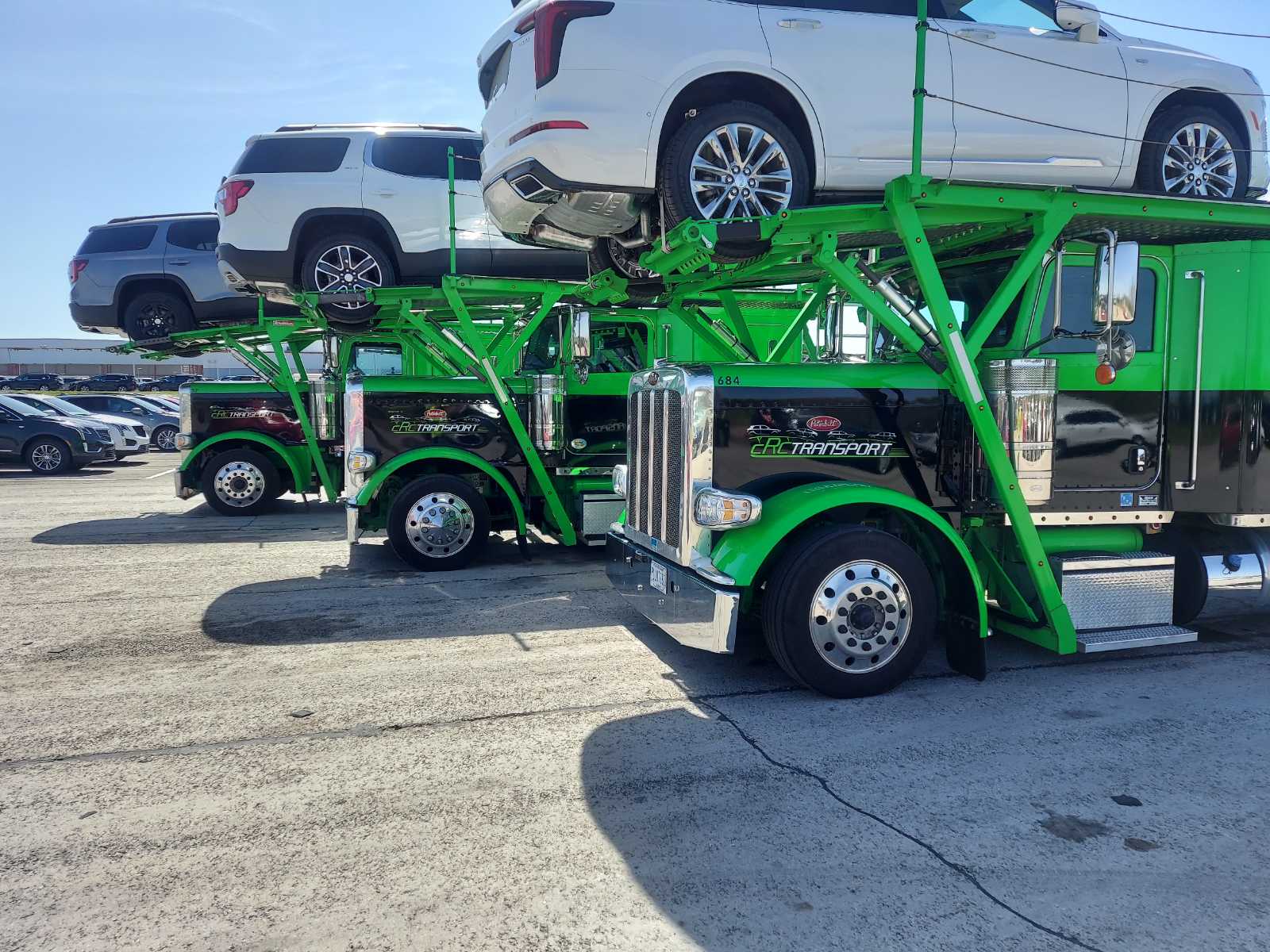
Your Vehicle Transport Quote

How Automotive Logistics Drives Retail Success for Dealers and OEMs
Retail success doesn’t begin on the showroom floor. It begins long before — with how inventory is planned, moved, and delivered. This carousel breaks down why auto logistics quietly determines sales velocity, margins, and customer trust for dealers and OEMs alike. Because when logistics works, retail wins. This is the standard CRC Transport operates by. […]

Why “Probably” Is the Most Expensive Word in Logistics
The most expensive word in logistics isn’t “delayed.” It’s ”probably.” ”The truck will probably arrive Tuesday.” ”We can probably fit it on the next load.” ”Customs will probably clear by Friday.” Every “probably” is a customer already making backup plans. Vague language doesn’t just create uncertainty — it creates cost. Customers hold inventory they didn’t need […]

Leadership Lessons from the Road: What Logistics Teaches About Management
The best leadership lessons don’t come from boardrooms. They come from the highway — where decisions happen in real time, where communication gaps cost hours, and where trust is either earned or destroyed with every handoff. At CRC Transport, our drivers and dispatchers live these principles every day. And they translate directly to how businesses […]

Q1 as the Ultimate Stress Test for Automotive Logistics
Q1 is where the real logistics operators separate from the rest. Post-holiday inventory corrections. Weather volatility without warning. OEM production ramp-ups after shutdowns. Cross-border volume shifts. Fleet planning cycles that define the next six months. It’s the quarter where “we’ll figure it out later” becomes “why didn’t we plan for this?” At CRC Transport, we […]

The Importance of Load Optimization in Modern Automotive Transport
In today’s competitive automotive industry, every mile, every vehicle, and every minute counts. Dealers, auctions, and OEMs rely on efficient transport to move inventory safely and cost-effectively. One of the most overlooked aspects of vehicle logistics is load optimization — the strategic planning of how vehicles are arranged, grouped, and routed on transport carriers to […]

How Optimized Transport Scheduling Drives Profitability and Efficiency for Dealerships
For dealerships, transport scheduling is far more than a logistics detail — it’s a key factor that directly affects profitability, operational efficiency, and customer satisfaction. Vehicles that arrive late, in the wrong order, or without proper coordination can create bottlenecks in recon, sales, and lot placement, increasing costs and slowing inventory turnover. Understanding the relationship […]

The Hidden Cost of Cheap Car Transport for Dealerships
Why Real-Time Tracking Is Transforming Automotive Logistics Modern automotive logistics is no longer just about moving vehicles from one point to another. The industry has evolved into a data-driven ecosystem where visibility, timing, and accuracy determine profitability. As dealerships, OEMs, and large auction operations deal with rising volume, more complex supply chains, and tighter delivery […]

Choosing Between Regional and National Transport Partners – What Dealers Should Know
For dealerships, choosing the right transport partner is a strategic decision that can affect operational efficiency, costs, and inventory turnover. Whether you rely on auctions, OEM deliveries, or multi-location transfers, understanding the strengths and limitations of regional versus national transport partners is essential for optimizing vehicle logistics. Selecting the wrong partner can result in delayed […]

Auction-to-Showroom Workflow Optimization – How to Eliminate Time Waste
For dealerships, the process from auction purchase to showroom readiness is one of the most critical operational paths. Every hour a vehicle sits idle — whether at the auction, in transit, or waiting for recon — represents lost opportunity. Inefficient auction-to-showroom workflows not only increase holding costs but also slow inventory turnover, disrupt staffing schedules, […]

Why Multi-Location Dealership Groups Need Centralized Transport Coordination
As dealership groups expand across multiple rooftops, their logistics challenges grow just as quickly. Moving vehicles between locations, managing auction purchases, balancing inventory, and coordinating recon all become significantly more complex. Without a centralized transport strategy, inefficiencies multiply — and so do costs. For multi-store dealer groups, transport isn’t just a support function. It’s a […]

Digital Condition Reports + Smart Transport: The New Standard in Damage Prevention
Damage prevention has become one of the most important priorities for dealerships, auctions, and remarketing partners. With margins tightening and vehicle values rising, even minor transport-related issues can create major slowdowns — from delays in reconditioning to disputes that drain time and resources. As the industry shifts toward digitalization, two tools are becoming essential for […]

How Delays at Auctions Affect Dealer Profit – And How Smart Logistics Prevent It
For most dealerships, auctions are the backbone of their used-car inventory pipeline. But while auctions are fast-paced on the bidding side, the logistics that follow can be surprisingly slow — and these delays have a direct, measurable impact on dealer profitability. Every hour a vehicle sits at an auction instead of moving toward your lot […]

Why Inventory Turnover Depends on Transport Efficiency – A Dealer’s Guide
For dealerships, inventory turnover is one of the most important performance metrics. Every additional day a vehicle stays off the lot increases holding costs, delays reconditioning, slows sales velocity, and impacts profitability. While dealers focus heavily on acquisitions, pricing, and merchandising, one factor often gets overlooked: transport efficiency. The time between purchasing a vehicle and […]

The Future of Auction Logistics – Digital Bidding, Smart Transport, and Faster Turnaround
Automotive auctions are evolving faster than ever. Dealers, fleet managers, and remarketing partners now operate in an environment where speed, transparency, and technology-driven coordination directly influence profitability. With more vehicles moving through digital lanes, and buyers relying on real-time data to make purchasing decisions, auction logistics must transform to keep pace. Below is a practical […]

Performance at scale doesn’t happen by chance
Performance at scale doesn’t happen by chance. In 2025, CRC Transport delivered consistent results across a growing, modern fleet — supporting OEMs and dealers with predictable transit, minimal dwell time, and industry-leading damage prevention. These figures reflect more than volume. They represent operational discipline, long-term partnerships, and a team structured to perform under pressure. Reliable […]

Avoiding Damage Claims: What Dealers Should Look For in a Professional Transport Company
For dealerships, damage claims are more than just a logistical inconvenience — they’re a drain on time, money, and customer confidence. When a vehicle arrives with transport-related damage, the dealership must navigate paperwork, delayed retail readiness, repair costs, and dissatisfied buyers. Even minor damage slows inventory flow and directly impacts profitability. While no transport operation […]
